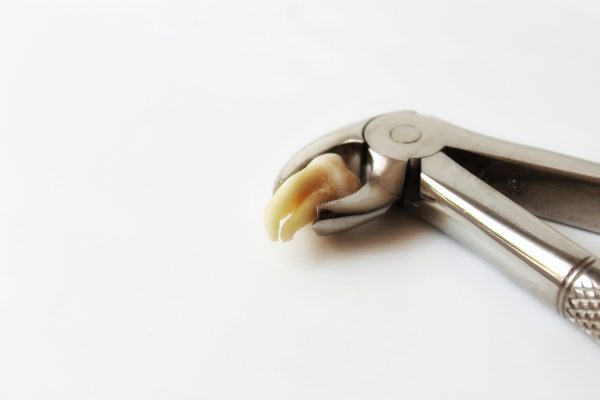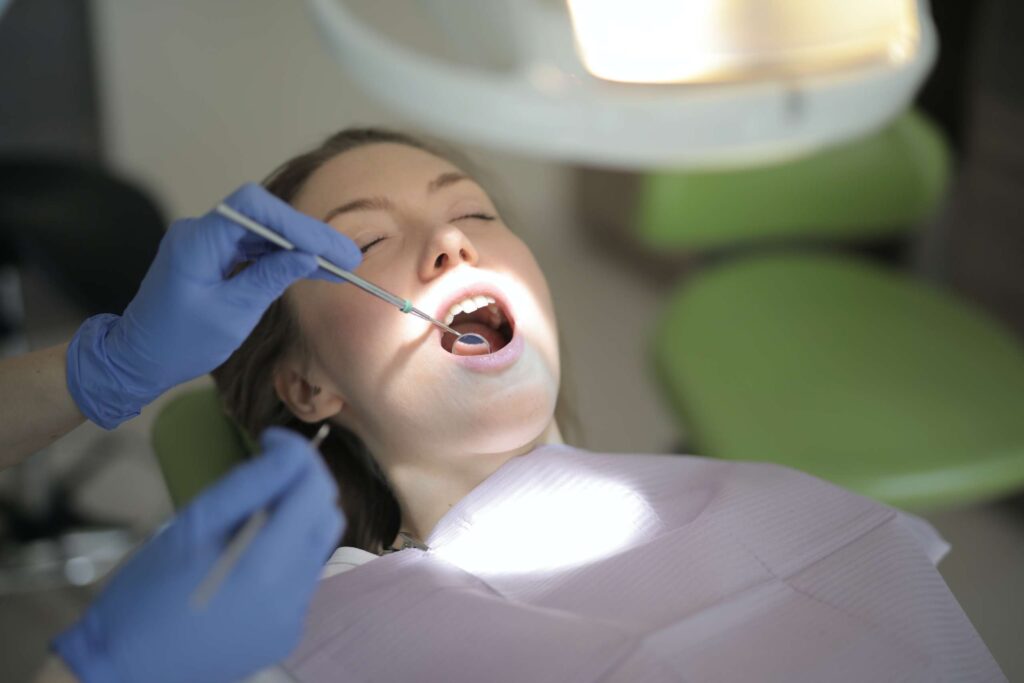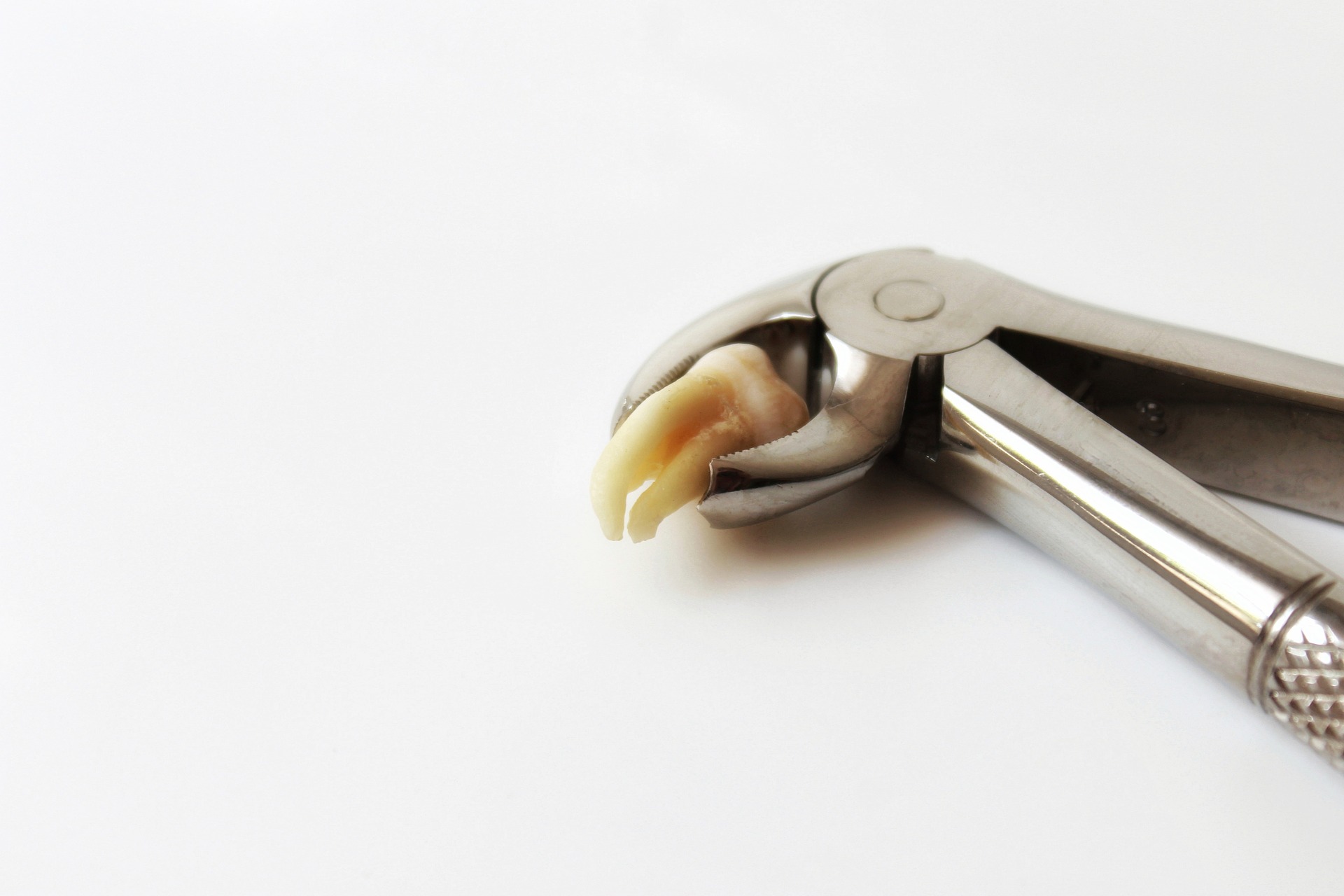Wisdom Teeth Removal Recovery:
Tips for a Quick Recovery
Wisdom teeth, also known as third molars, are the last set of teeth to develop in the human mouth. These teeth tend to erupt later in life, often causing problems such as crowding and misalignment of other teeth. As a result, many people opt to have their wisdom teeth removed, either to prevent or address these issues. Recovery from wisdom teeth removal can vary from person to person, but with the right care and attention, the healing process can be quick and relatively painless.
In this article, we will explore some wisdom teeth removal recovery tips to help you get back to your normal routine as soon as possible. Whether you are preparing for an upcoming procedure or are already in the recovery phase, these tips will be valuable in ensuring a smooth and comfortable recovery.

Why Wisdom Teeth Removal is Common
One of the main reasons why wisdom teeth removal is so common is because of the limited space in the jaw. As the wisdom teeth emerge, they can push against the other teeth, causing them to become crooked or misaligned. This can lead to a host of issues, including pain, infection, and difficulty in properly cleaning the teeth.
Another common issue with wisdom teeth is that they may become impacted, meaning they are unable to fully emerge from the gums. This can happen due to a lack of space in the jaw, or because the teeth are growing at an angle. Impacted wisdom teeth can cause significant pain and discomfort, as well as an increased risk of infection.
Due to these problems, many people choose to have their wisdom teeth removed early. By removing the teeth before they have a chance to cause pain or crowding, patients can avoid the potential complications that can arise from wisdom teeth. Additionally, removing wisdom teeth early can prevent future issues and help ensure that the other teeth remain healthy.
While it is possible to wait and see if your wisdom teeth will cause problems, many people opt to have them removed as a preventive measure. This can ensure a smoother recovery and prevent future issues from arising.
Tips for Wisdom Teeth Removal Recovery
1. Stock up on the right foods and beverages before the procedure
One of the most important things you can do before your wisdom teeth removal procedure is to stock up on the right foods and beverages. This will help ensure that you have everything you need to promote optimal healing and reduce discomfort after your procedure.
First and foremost, it’s important to stay hydrated. It’s recommended that you drink plenty of liquids for the first 24 hours after your wisdom teeth removal. Smoothies and juice are great options, as they are easy to consume and provide a good balance of nutrients. However, you should avoid drinking hot beverages during the first week or so after your procedure. This is because hot drinks can increase blood flow to the area and cause more swelling and discomfort.
Another important thing to keep in mind is to avoid using a drinking straw. While it might seem like a logical choice, especially if you’re spending a lot of time reclining, the suction created by a straw can dislodge the clot that forms inside the tooth socket. This can lead to a painful condition known as dry socket, which can prolong your recovery and make you more uncomfortable.
In addition to liquids, it’s also a good idea to stock up on soft foods that are easy to chew and swallow. Foods like applesauce, yogurt, and pudding are all great options. You should also avoid foods that are hard, crunchy, or sticky, as these can put undue stress on your jaw and prolong your recovery.
By keeping these tips in mind and stocking up on the right foods and beverages before your wisdom teeth removal procedure, you can help ensure that you have everything you need to promote optimal healing and reduce discomfort after your procedure.
2. Keep some pillows on hand
After your wisdom teeth removal procedure, it is important to take it easy and let your body focus on healing. One way to aid in this process is by keeping your head elevated with soft pillows. This will help to reduce swelling and discomfort in the area. It is recommended to avoid strenuous exercise for a few days following the procedure and to plan on spending at least one or two days to nap and relax.
Keeping your head elevated with pillows will also help to improve circulation, which can aid in the healing process. This can be especially helpful during the first 24 hours after the procedure when your body is still adjusting to the changes. Additionally, it is important to note that pain medication may make you feel sleepy, so having pillows on hand will ensure that you are comfortable while resting and recovering.
3. Don't touch the incision sites
After having your wisdom teeth removed, it is important to take proper care of the incision sites to promote healing and minimize discomfort. One of the most important things to keep in mind is to avoid touching or disturbing the incision sites. While it may be tempting to brush or probe the area, doing so can cause irritation and delay the healing process.
Instead, the American Association of Oral and Maxillofacial Surgeons recommends gently rinsing the area with warm salt water to help reduce swelling. However, it is important to do this gently and avoid vigorously rinsing the area. Doing so can cause dislodgement of the clot that forms inside the tooth socket, leading to a painful condition known as dry socket.
Another important thing to remember is to avoid brushing the area until your dentist or oral surgeon has given the okay. Brushing can cause irritation and can also cause bleeding. However, you can rinse your mouth gently with warm salt water to help keep the area clean. Taking care of the incision sites after wisdom teeth removal is crucial for promoting healing and minimizing discomfort.
4. Keep your mouth moving
It’s important to keep your mouth moving to promote healing and reduce stiffness. The act of opening and closing your jaw can help to increase blood flow to the area, which can aid in the healing process. Additionally, gently moving your jaw can help to reduce stiffness and soreness that may occur after the procedure.
One way to keep your mouth moving is by performing simple jaw exercises, such as opening and closing your mouth wide, moving your jaw from side to side, and even talking. These exercises can be done multiple times a day, but it’s important to start slowly and not overdo it as you may experience pain or discomfort if you push too hard.
5. Have lots of ice on hand
It is important to have ice readily available after your wisdom teeth removal procedure. The application of an ice pack to the cheek can help to minimize discomfort, reduce swelling, and decrease the chance of bruising. To use the ice pack, it is important to never apply it directly to the skin. Instead, use a specialized ice pack or wrap a bag of frozen vegetables in a cloth and apply it to the cheek.
It is recommended to keep the ice pack in place for 20-minute intervals, with 20 minutes on and 20 minutes off. This will help to decrease inflammation and improve circulation in the area, promoting healing.
Additionally, using an ice pack can help to numb the area and provide pain relief. It is important to note that ice should not be used for more than 48 hours after the procedure as prolonged use can cause blood vessels to constrict, slowing down the healing process.
6. Use your pain meds as directed
Pain management is a crucial aspect of wisdom teeth removal recovery. After the procedure, you will likely experience some level of discomfort and pain. To help alleviate this, you will be given a prescription for pain medication. It is important to follow the dosing instructions provided by your dentist or oral surgeon. Over-the-counter pain medication can also be used, but it is important to follow the recommended dosage.
It is important to note that some pain medications can be addictive, so it is crucial to use them as directed. Avoid taking more than the recommended dosage or taking them for longer than the prescribed period. It is also important to avoid mixing pain medications with alcohol or other substances that can negatively interact with them.
Additionally, it is important to keep in mind that pain medication may cause drowsiness, so it is best to avoid operating heavy machinery or driving while under their influence. If you have any concerns or questions about your pain medication, be sure to ask your dentist or oral surgeon for guidance.
It is also important to not forget the other methods of pain management such as ice packs, elevation of the head, and over the counter pain medication like ibuprofen or paracetamol. These methods can be used in conjunction with prescribed medication to help manage pain and promote healing.
7. Keep the area clean
In order to promote optimal healing after wisdom teeth removal, it is important to keep the surgical area clean. This can be done by gently rinsing the area with warm salt water, avoiding brushing or probing the area, and refraining from vigorous rinsing.
It is also important to avoid smoking or using straws for the first week after the procedure, as these actions can dislodge the clot that forms inside the tooth socket and cause dry socket.
Keeping the surgical area clean will not only reduce inflammation, but also prevent food and debris from collecting around the area and potentially delaying the healing process.
8. Avoid smoking and alcohol
It is important to avoid smoking and alcohol during the recovery period after wisdom teeth removal. Smoking can delay healing and increase the risk of complications, as the act of inhaling can dislodge the blood clot that forms in the extraction site, leading to a condition known as dry socket. Additionally, smoking can also cause more swelling, pain, and slow healing.
Alcohol should also be avoided, as it can cause increased bleeding, swelling and can also interfere with the effectiveness of pain medication. It is also important to avoid drinking from straws and spitting, as these actions can dislodge the blood clot and lead to dry socket.
9. Use a mouthwash
Using a mouthwash is an important part of the recovery process after wisdom teeth removal. A mouthwash can help to keep the area clean and reduce the risk of infection. It can also help to reduce pain and inflammation. When choosing a mouthwash, it’s important to look for one that is specifically designed for use after oral surgery. These types of mouthwashes often contain anti-inflammatory ingredients like chlorhexidine or hydrogen peroxide, which can help to reduce swelling and promote healing.
It’s important to follow the instructions for using the mouthwash carefully. This may include rinsing your mouth with the mouthwash for a certain amount of time, and doing so after eating or brushing your teeth. It’s also important to note that using a mouthwash should not replace proper oral hygiene practices such as brushing and flossing. It’s best to use the mouthwash as an addition to your regular oral care routine.
Additionally, be sure to avoid using mouthwash that contains alcohol as it can dry out the mouth and delay healing.
10. Take care of your diet
It is important to take care of your diet during your wisdom teeth removal recovery. Eating the right foods can help promote healing and reduce discomfort. It is best to stick to soft, easily chewable foods, such as cooked vegetables, soups, and smoothies, in the days following the procedure.
Eating a well-balanced diet that includes plenty of fruits and vegetables can help your body get the vitamins and minerals it needs to recover quickly.
11. Stay hydrated
Staying hydrated is crucial for a quick and smooth recovery after wisdom teeth removal. Adequate hydration helps to keep the mouth clean and reduces the risk of infection. It also helps to reduce swelling and discomfort. It is recommended to drink plenty of water and other fluids such as clear broths, frozen ice pops, or sports drinks (but avoid those with high sugar content).
Avoiding alcohol and caffeine is also important as they can dehydrate the body. It is also important to note that you may experience a decrease in appetite after the surgery, so drinking fluids can also help to maintain proper nutrition.
12. Get plenty of rest
It is important to get plenty of rest after wisdom teeth removal. This is because the body needs time to heal and recover after a surgical procedure. Sleeping allows the body to divert more resources towards healing, which can help reduce recovery time and minimize discomfort.
Additionally, getting enough rest can also help to reduce stress and anxiety, which can also contribute to a quicker recovery. It is also important to avoid strenuous activities and exercises for the first few days after the procedure to avoid bleeding and injury.
13. Follow up with your dentist
It is essential to follow up with your dentist after wisdom teeth removal. Your dentist will schedule follow-up appointments to check on your recovery and ensure that everything is healing properly. During your follow-up appointments, your dentist will check for signs of infection, dry socket, or other complications. They will also make sure that the incision sites are healing well and that there is no bleeding or swelling.
If you experience any unusual symptoms or have questions about your recovery, your dentist is the best person to consult. They may also remove any stitches or dissolvable sutures if necessary. It is essential to attend all follow-up appointments and report any concerns you may have. This will ensure a smooth recovery and prevent any long-term complications.
In conclusion, it is important to remember that each person’s recovery will be different, and it’s important to listen to your body and take the necessary precautions to ensure a quick and smooth recovery.
Following these wisdom teeth removal recovery tips will help to minimize any discomfort or complications, and allow you to return to your normal activities as soon as possible. Remember these tips as you go through the recovery process, and you will be well on your way to a successful recovery.
YOUR DENTIST IN WALL TOWNSHIP, New Jersey

Looking for a dentist near you in Wall Township, New Jersey?
Visit Dr. Avi Israeli of Sage Dental and Spa to get your dental works! Let us help you get your smile back.


